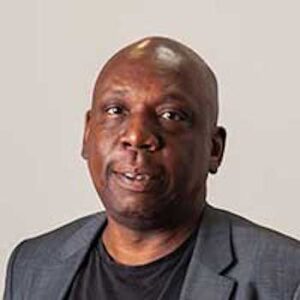Last updated:
 Why Trust Cryptonews
Why Trust Cryptonews

The Federal High Court in Abuja has denied the fresh bail application of Tigran Gambaryan, a senior Binance executive who has been detained since February 2024 on money laundering charges.
The court’s no-bail decision, handed down on October 11, 2024, by Justice Emeka Nwite, followed heated arguments between Gambaryan’s defense and the Economic and Financial Crimes Commission (EFCC) over claims related to his health and the necessity of his continued detention.
Tigran Gambaryan Detention: Nigerian Court Denied Bail
According to a local source, Tigran Gambaryan’s legal team, led by Senior Advocate of Nigeria (SAN) Mark Mordi, had earlier filed a fresh bail application because his client’s health had worsened while in detention.
The defense argued that Gambaryan suffered from a serious medical condition, specifically a herniated disc, and needed surgery and psychiatric care for depression and anxiety.
They contended that these conditions could not be adequately treated in Nigeria’s detention facilities and asked for a six-week bail period to allow him to seek specialized care abroad.
In the previous hearing on September 4, 2024, Mordi presented medical reports and argued that Gambaryan’s condition had significantly deteriorated since his detention began and called for an urgent need for medical intervention.
“His condition is critical, and failure to provide him with immediate medical attention could lead to irreversible harm.”
He implored the court to grant bail under “liberal terms” or, alternatively, a six-week bail to facilitate necessary medical treatment abroad.
However, the EFCC, represented by its counsel Ekele Iheanacho, opposed the bail application, arguing that Gambaryan’s health claims had been exaggerated.
Iheanacho provided counter-evidence, including medical reports from the State House Clinic and Nizamiye Hospital, where Gambaryan had been treated.
The EFCC’s argument centered on the assertion that Nigerian medical facilities were fully capable of managing Gambaryan’s condition and that there was no urgent need for him to leave the country for treatment.
He added that Gambaryan had refused medical interventions, including medication, and questioned the severity of his condition, suggesting that his health issues were being used as a strategy to secure bail.
Iheanacho further pointed out that Gambaryan’s initial bail application, which was also based on health concerns, had already been denied by the court, and an appeal was pending at the Court of Appeal.
He argued that the fresh bail application was an abuse of the court process, as the same issues were being re-litigated without the withdrawal of the earlier appeal.
Judge’s Ruling: Abuse of Process and Adequate Medical Care
Justice Emeka Nwite, in delivering his ruling, sided with the EFCC’s argument, emphasizing that the fresh bail application amounted to an abuse of court process.
Nwite noted that Gambaryan’s first bail application, which also cited health concerns, was still under appeal and had not been withdrawn and a new application cannot be accepted.
“There is no gainsaying on this leg alone that this application is bound to fail. It is well established that a lawyer cannot re-litigate a matter that is already under appeal unless the earlier application has been withdrawn.”
The judge also reviewed the medical evidence presented by both sides, concluding that there was no indication that Gambaryan’s health condition could not be managed within Nigeria.
He referenced the reports from both the State House Clinic and Nizamiye Hospital, which indicated that Gambaryan had been receiving regular medical care.
The reports, according to the court, did not support the claim that his health was deteriorating to the point where he required treatment abroad but rather showed that he had been fully engaged and provided with necessary treatment.
However, in a move to ensure his health needs were being met, the judge ordered the Nigerian Correctional Service (NCoS) to refer Gambaryan to a standard hospital in Abuja for further evaluation and treatment, if necessary, under security supervision.
The court has scheduled the next hearing for October 18, with additional sessions on November 22 and 25, 2024. For now, Gambaryan remains in detention, with his health and legal battles ongoing.





















